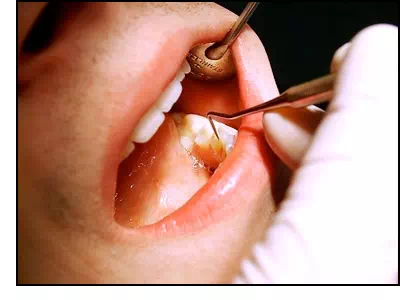Dental Offices - Overview
Although dental offices don't appear to have much in common with heavy industry or the construction sector, they are all regulated by the same federal and state laws that protect our environment and are equally subject to penalties when the rules are not followed. Like most businesses, dental offices want to comply with regulations. However, it can be difficult relating to and interpreting rules that seemingly apply only to factories or large hospitals. To help overcome this situation, this section of HERC has been developed, which emphasizes those aspects of local, state and federal environmental regulations that most frequently apply to dental offices. The focus here is on regulations with regard to:
- wastewater discharges containing mercury, and
- identification of regulated solid wastes and the proper management and disposal of these materials.
Wastewater from dental offices that apply or remove dental amalgam (or did previously) is likely to contain mercury and other heavy metals. Studies have shown that a significant portion of the mercury that enters our environment from businesses, comes from dental offices. Within the past 20 years, local and state agencies have been cracking down on these discharges by passing and enforcing strict rules. More recently, EPA has finalized effluent guidelines regulations that require dental offices to install amalgam separators or similar technology to prevent the discharge of mercury to sewer systems.
Solid waste generated by dental offices is mostly "office waste," including paper, cardboard, plastics, and aluminum that is preferable recycled or otherwise discarded through a municipal waste system. However, a small percentage of dental office waste is special waste that is specifically regulated by state and federal environmental regulations. These special solid wastes include:
- regulated medical waste (e.g., blood soaked absorbents, sharps);
- hazardous waste (e.g., x-ray chemicals, certain pharmaceuticals); and
- universal waste (e.g., fluorescent bulbs, batteries).
Please keep in mind, that this section of HERC covers regulations that most frequently apply to dental offices and it is not a comprehensive review of environmental regulations that potentially apply to your business. Site-specific practices and conditions may require compliance with additional or different rules. Therefore, users are urged to fully investigate environmental laws and regulations and as necessary, consult with legal counsel and appropriate authorities before interpreting any regulations or undertaking any specific course of action.
To access Dental Office topics use the pull-down menu above or click on the links below.
- Wastewater
- Solid Waste
- Managing Specific Wastes
In addition to the above topics, the following HERC sections may be particularly useful to dental offices:
- Energy Efficiency
- Green Building
- Landscaping
- OSHA - Bloodborne Pathogens Standard
- Paint (and paint waste)
- Waste Reduction
- Water Conservation



